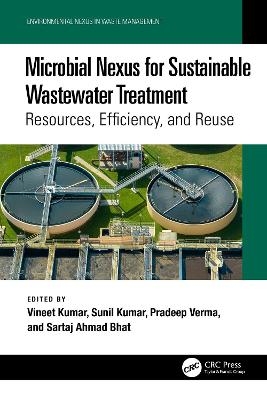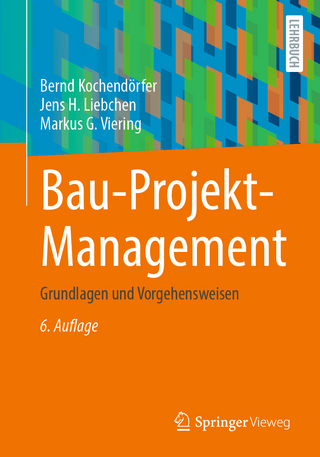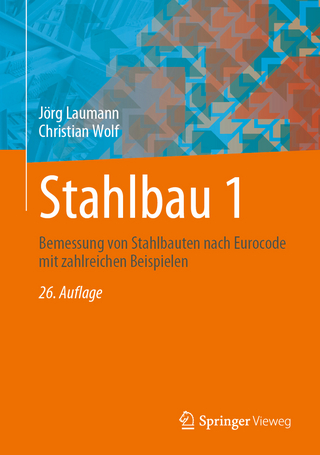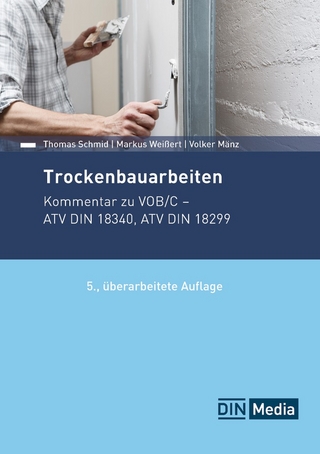
Microbial Nexus for Sustainable Wastewater Treatment
CRC Press (Verlag)
978-1-032-52859-5 (ISBN)
Microbial ecology is pivotal in wastewater treatment, where microorganisms play a vital role in breaking down organic matter and ultimately reduce the levels of contaminants in treated water, making it safe for reuse in agriculture, industry, and other applications. The book, Microbial Nexus for Sustainable Wastewater Treatment: Resources, Efficiency, and Reuse, ventures into the dynamic world of microbial ecosystems, unveiling their pivotal role in reshaping wastewater treatment technologies. This book addresses novel microbial techniques related to sustainable, efficient technologies of wastewater treatment and wastewater reuse as well as obtaining high-quality effluents from treatment plants.
Features:
Unveils the potential of high-throughput microbial biotechnology for transforming wastewater management.
Describes the microbial nexus involved in the biodegradation of pharmaceutical micropollutants.
Highlights the valuable materials recoverable from wastewater, associated challenges, and diverse opportunities arising from effective wastewater management.
Covers advanced bioremediation technologies designed to handle emerging pollutants. Demonstrates the integration of nanotechnology with bioaugmentation, exploring potential advantages and disadvantages that shape the future of wastewater treatment.
Provides insights into adopting a circular economy model aligning with sustainable development goals for resource extraction.
This book is tailored for graduate students and researchers in wastewater treatment, waste valorization, environmental engineering, and hazardous waste management.
Vineet Kumar is currently a National Postdoctoral Fellow in the Department of Microbiology, School of Life Sciences at the Central University of Rajasthan, Rajasthan, India. He got his M.Sc. (2008) and M.Phil. (2012) in Microbiology at Ch. Charan Singh University, Meerut, India. Subsequently, he earned his Ph.D. (2018) in Environmental Microbiology from Babasaheb Bhimrao Ambedkar (A Central) University, Lucknow, India, focusing on the treatment of distillery effluent in two step treatment system, towards environmental sustainability. Sunil Kumar is a well-rounded researcher with more than 22 years of experience in leading, supervising, and undertaking research in the broader field of Environmental Engineering and Science with a focus on Solid and Hazardous Waste Management. Dr. Kumar is a graduate in Environmental Engineering and Management from the Indian Institute of Technology, Kharagpur, India. He completed his Ph. D. in Environmental Engineering from Jadavpur University, Kolkata, India. His primary area of expertise is solid waste management (Municipal Solid Waste, Electronic waste etc.) over a wide range of environmental topics including contaminated sites, EIA, and wastewater treatment. Pradeep Verma is working as Professor in the Department of Microbiology, School of Life Sciences at Central University of Rajasthan, Rajasthan, India. He is a well-rounded researcher with more than 21 years of experience in leading, supervising, and undertaking research in the broader field of bioprocess and bioenergy production from lignocellulosic waste with a focus on waste management. He earned his PhD in Microbiology from Sardar Patel University Gujarat, India in 2002. His research area of expertise involves microbial diversity, bioremediation, bioprocess development, lignocellulosic and algal biomass based biorefinery. Sartaj Ahmad Bhat is working as JSPS Postdoctoral Researcher at the River Basin Research Center, Gifu University, Japan. He received his Ph.D. in Environmental Sciences from Guru Nanak Dev University, Amritsar, India in 2017. His research interests focus on vermicomposting treatment of various solid wastes, especially for investigations on fate and behavior of emerging pollutants during biological treatment of organic wastes.
1. Enhancing microbial cooperation within the microbial nexus-based system
2. Microbes in membrane technologies: Prospects for sustainable wastewater treatment
3. Strategies for tuning microbial community from anaerobic digestion to remove emerging pollutants
4. Energy-water-waste nexus for sustainable wastewater and development
5. Recent advances in conventional and modern waste treatment approaches
6. Contributions of biodegradation and biotransformation by microbial nexus in advanced pharmaceutical wastewater treatment
7. Recovery of value-added materials from wastewater: Developments, challenges, and opportunities in the developing countries
8. The intervention of microbial enzymes in wastewater management: An update
9. Microbial nexus in effluent treatment plant: Trends and perspectives
10. Microbial nexus for circular economy and climate change: Recent advancement in bioelectrochemical systems and future opportunities
11. Microbial technologies: Effectiveness and feasibility viewpoint
12. Linear to circular economy for sustainable wastewater treatment
13. New trends in wastewater recycling, treatment, management
14. Decrease the contaminant load of compounds present in whey by using microorganisms capable of generating microbial cellulose
15. Unveiling the prospects of high throughput microbial biotechnology in the effective management of wastewater
16. Strategies for emerging compounds removal through microbial niche tuning
17. Use of microbial nexus system high Andean areas: Effectiveness and feasibility for wastewater treatment
| Erscheinungsdatum | 10.07.2024 |
|---|---|
| Reihe/Serie | Environmental Nexus in Waste Management |
| Zusatzinfo | 22 Tables, black and white; 41 Line drawings, black and white; 19 Halftones, black and white; 60 Illustrations, black and white |
| Verlagsort | London |
| Sprache | englisch |
| Maße | 156 x 234 mm |
| Gewicht | 980 g |
| Themenwelt | Technik ► Bauwesen |
| Technik ► Elektrotechnik / Energietechnik | |
| Technik ► Umwelttechnik / Biotechnologie | |
| ISBN-10 | 1-032-52859-1 / 1032528591 |
| ISBN-13 | 978-1-032-52859-5 / 9781032528595 |
| Zustand | Neuware |
| Haben Sie eine Frage zum Produkt? |
aus dem Bereich


